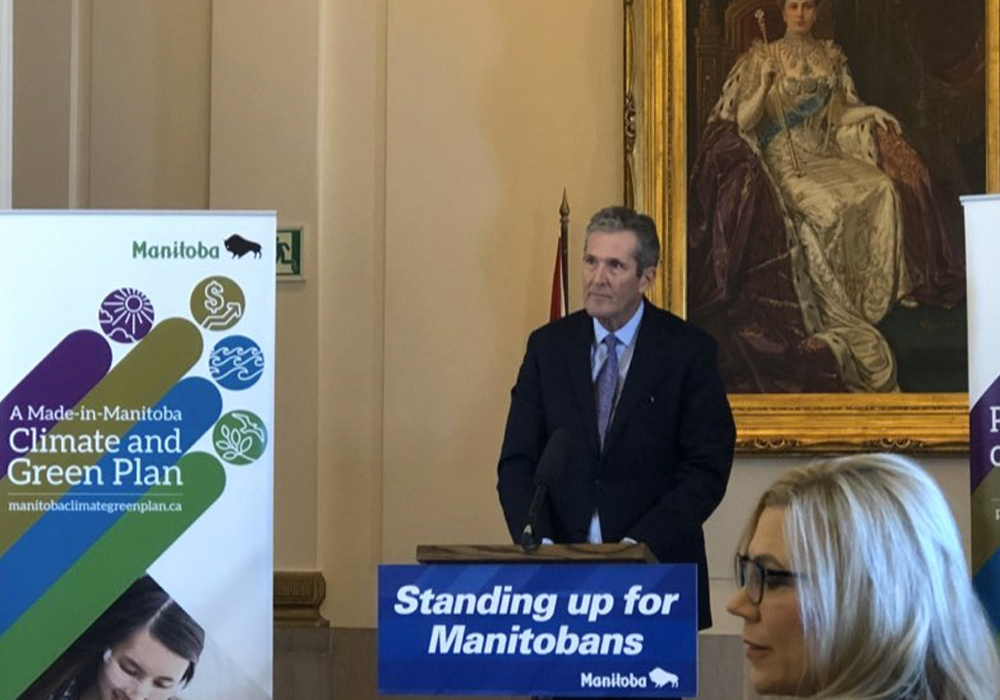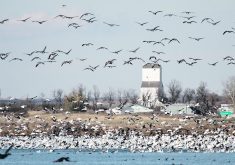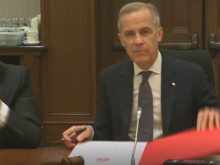Starting July 1, Manitoba will have a $25 per tonne Green Levy.
This morning, Premier Brian Pallister introduced the carbon levy and took a swipe at the Liberal government in Ottawa.
“Unfortunately, the federal government ignored our request to work together as a true partner in tackling climate change, so we have no choice but to act now to protect Manitobans from the rising federal government carbon tax they are bringing in this year,” Pallister said in a news release.
Manitoba also announced a reduction in the Provincial Sales Tax. On July, 1 it will drop from seven percent to six.
Read Also

Field-by-field mapping could improve yield, productivity predictions
University of Saskatchewan researchers are using field border mapping to collect data on field variability, including problematic weeds, and to predict things like yields.
The $25 per tonne carbon tax will be flat, meaning it will not rise in future years.
The Manitoba approach is distinct from the federal government, which has introduced an escalating carbon tax. It will reach $50 per tonne in 2022.
“Unlike the federal government’s rising carbon tax, our flat made-in-Manitoba Green Levy will return all of the money and more to Manitobans with the second-lowest PST in Canada,” Pallister said.
For the last few months, Pallister and Manitoba’s Progressive Conservative government have argued that Ottawa should “respect” the province’s massive investment in clean energy — mostly in the form of hydroelectric power.
Pallister went on a media campaign in January and February, making the case that Manitoba has committed billions to build new hydroelectric dams and power transmission lines. Those projects should be included in a carbon plan that applies to Manitoba.
“Ottawa has provided special exceptions and exemptions to many other provinces but refused to consider Manitoba’s significant clean hydro investments,” Pallister said. “Together with our hydro investments, the highest clean fuel standards in the country announced in January, plus additional measures we are taking, Manitoba’s carbon emissions will be reduced by more than any previous government.”
Our government was pleased to announce part of our vision for a cleaner, greener Manitoba this morning, with our plan to implement a flat carbon levy of $25 per tonne—and also lower PST to 6%. Our plan is better for the environment, the economy and the future. pic.twitter.com/YSq97KWQtC
— Hon. Sarah Guillemard (@MinSGuillemard) March 5, 2020
In January, Manitoba unveiled a plan to increase the biodiesel content in diesel to five percent, up from two percent. As well, the required ethanol content will jump from 8.5 to 10 percent.
Manitoba proposed a flat levy on carbon in the Made-in-Manitoba Green Plan, which Pallister proposed a couple of years ago.
The federal government rejected that plan because it opposed a flat levy on carbon.
Last year it imposed the escalating federal carbon tax on Manitobans.
The $25 Green Levy will replace the federal government’s carbon tax, Pallister said.
The Manitoba government had previously said its carbon tax will not apply to grain drying and fuel costs for farm production.
Contact robert.arnason@producer.com


















